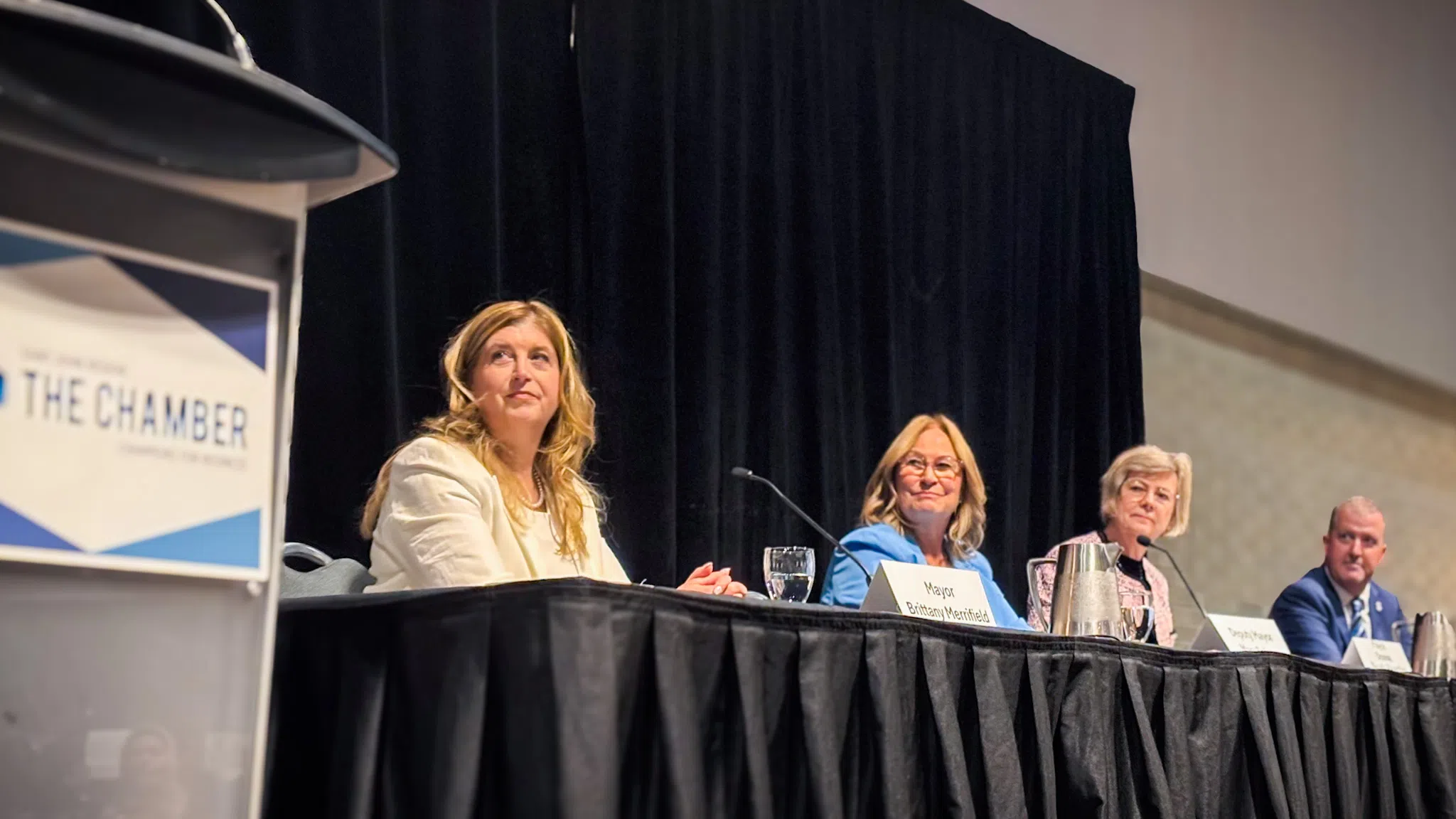At the State of the Region meeting, municipal leaders faced key topics impacting residents and businesses across the region.
Housing shortages, outdated tax structures, and regional economic growth were at the center of the conversation on Wednesday.
Key discussions and public concerns
Early in the meeting, municipal leaders outlined their priorities, from infrastructure investments to financial stability.
But as discussions unfolded, public concerns became clear, especially in the Q&A session, where residents and business leaders raised pressing issues.
One of the biggest worries voiced was affordable housing and its impact on local businesses.
Deputy Mayor Mary Schryer of Quispamsis highlighted how rising costs are making it harder for employers to attract and retain workers.
“We hear about businesses unable to find employees because workers simply can’t afford to live close to where the jobs are,” she noted.
Alongside housing, attendees emphasized the need for tax reform, questioning whether municipalities have the right financial tools to support long-term growth.
Grand Bay-Westfield Mayor Brittany Merrifield reinforced that cities and towns are facing constraints under the current tax system.
“We know that the work is far from done, and that’s why municipal fiscal property tax and assessment reform must be front and center,” she explained.
Building strong, livable communities
Beyond financial challenges, Saint John Mayor Donna Noade Reardon stressed the importance of prioritizing livability in city planning, rather than just business expansion.
“We want to build inclusive communities where people want to come, live, and work. We’re not looking to build anonymous employment hubs that empty out at the end of the day—that’s not what we’re looking for,” she said.
She pointed to green spaces, public amenities, and transportation accessibility as essential factors in creating a thriving and welcoming city.
Regional cooperation to strengthen growth
Municipal leaders emphasized that regional collaboration will be key in tackling these challenges.
Deputy Mayor Dr. Matt Alexander of Rothesay highlighted the importance of coordinated planning and shared infrastructure to create stability across municipalities.
“Our communities don’t exist in isolation. We need regional solutions that ensure all municipalities benefit from strong economic planning,” he said.
Both Schryer and Merrifield agreed, emphasizing that streamlining regulations would make it easier for businesses to expand across the region.
The meeting wrapped up with a strong call to action: municipal taxation, housing affordability, and economic expansion must be addressed with smarter policies and better collaboration.
Mayors agreed that growth must be balanced with livability, ensuring municipalities remain strong, affordable, and attractive for both businesses and residents.
The municipal leaders are pushing for closer cooperation with the province to secure financial stability, infrastructure improvements, and regional planning solutions.







